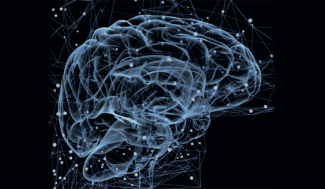We engage in checking behaviours on a daily basis. In certain pathologies such as OCD, these behaviours can be exacerbated and greatly disturb the quality of life of patients. A study conducted by Axel Baptista (AP-HP/Sorbonne University), Maxime Maheu (UKE Hamburg), Luc Mallet (AP-HP/Université Paris-Est Créteil) and Karim N'Diaye (CNRS) at the Paris Brain Institute shows that these checking behaviours are modulated by two cognitive mechanisms: metacognition and self-beliefs. The results are published in Scientific Reports.
The decisions we make every day include an element of uncertainty. To reduce this uncertainty and thus facilitate our choices, we carry out verification behaviours, such as listening several times to a message on the answering machine when the sound quality is poor. In some psychiatric conditions, such as obsessive-compulsive disorder (OCD), these checks are exacerbated and greatly handicap patients in their daily lives. While we experience these behaviours all the time, their brain mechanisms and disruptions in OCD are poorly understood.
This spontaneous behaviour is not easy to explore in the laboratory, particularly in healthy participants. To do this, we had to set up a specific computer test in which the participants would be inclined to view the same stimulus several times.
The task in question consisted of participants giving the direction of the global movement of a cloud of animated dots. The degree of difficulty was also adapted individually. In parallel, the researchers measured obsessive-compulsive tendencies, such as the propensity to check that the gas is turned off, as well as metacognitive beliefs, such as the extent to which the participants trust their memory, using standardised questionnaires.
We put a lot of effort into the methodological rigour and then the statistical analysis of the data to show that the subjective evaluation of our degree of uncertainty does modulate the tendency to check, but that this seems to be relatively limited to the uncertainty that we apprehend explicitly, i.e. the uncertainty that we become aware of when we are asked to evaluate our confidence in a decision.
The link between subjective uncertainty and verification behaviour is also modulated by negative metacognitive beliefs - the fact of not trusting one's "cognitive abilities". These beliefs tend to decouple verification behaviour from the degree of uncertainty. Finally, the researchers show in this study that obsessive-compulsive tendencies, in these healthy participants, exacerbate the link between uncertainty and checking. This may seem paradoxical insofar as OCD patients spontaneously report suffering from feeling compelled to check, while being aware that it is probably unnecessary.
This study will allow further work to confirm these mechanisms, and to study them in populations of patients with neuropsychiatric disorders like OCD. Indeed, it is suspected that these mechanisms are altered in this condition. Overall, this work could lead to a better understanding of the link between uncertainty, metacognition and OCD.
Sources
Baptista A, Maheu M, Mallet L, N’Diaye K (2021). Joint contributions of metacognition and self-beliefs to uncertainty-guided checking behavior. Sci Rep, 2021. doi: 10.1038/s41598-021-97958-1







